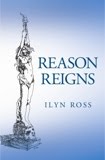"Have you considered all the consequences of your proposition respecting post roads? I view it as a source of boundless patronage to the executive, jobbing to members of Congress and their friends, and a bottomless abyss of public money. You will begin by only appropriating the surplus of the post office revenues; but the other revenues will soon be called into their aid, and it will be a source of eternal scramble among the members, who can get the most money wasted in their state; and they will always get most who are meanest. We have thought, hitherto, that the roads of a state could not be so well administered even by the state legislature as by the magistracy of the county, on the spot. How will they be when a member of New Hampshire is to mark out a road for Georgia? Does the power to establish post roads, given by the Constitution, mean that you shall make the roads, or only select from those already made, those on which there shall be a post?"
-The Writings of Thomas Jefferson, edited by Albert Ellery Bergh
A pro-freedom government would sell public transportation facilities to the private sector and end the U.S. Department of Transportation.
From Thomas J. DiLorenzo’s How Capitalism Saved America -
"James J. Hill built the Great Northern Railroad ‘without any government aid, even the right of way, through hundreds of miles of public lands, being paid for in cash,’ as Hill himself stated.
Quite naturally, Hill strongly opposed government favors to his competitors: ‘The government should not furnish capital to these companies, in addition to their enormous land subsidies, to enable them to conduct their business in competition with enterprises that have received no aid from the public treasury,’ he wrote. This may sound quaint by today's standards, but it was still a hotly debated issue in the late nineteenth century.
James J. Hill was hardly a ‘baron’ or aristocrat. His father died when he was fourteen, so he dropped out of school to work in a grocery store for four dollars a month to help support his widowed mother. As a young adult he worked in the farming, shipping, steamship, fur-trading, and railroad industries. He learned the ways of business in these settings, saved his money, and eventually became an investor and manager of his own enterprises. It was much easier to accomplish such things in the days before income taxation.
Hill got his start in the railroad business when he and several partners purchased a bankrupted Minnesota railroad that had been run into the ground by the government-subsidized Northern Pacific (NP). The NP had been a patronage ‘reward’ to financier Jay Cooke, who in the War Between the States had been one of the Union's leading financiers. But Cooke and his NP associates built recklessly; the government's subsidies and land grants were issued on a per-mile-of-track basis, so Cooke and his cohorts had strong incentives to build as quickly as possible, which only encouraged shoddy work. Consequently, by 1873 the NP developers had fallen into bankruptcy. The people of Minnesota and the Dakotas, where the railroad was being built, considered Cooke and his business associates to be ‘derelicts at best and thieves at worst,’ writes Hill biographer Michael P. Malone.…
The Great Northern's efficiency and profitability were legendary, whereas the government-subsidized railroads, managed by a group of political entrepreneurs who focused more on acquiring subsidies than on building sound railroads, were inefficiently built and operated. Jay Cooke was not the only one whose government-subsidized railroad ended up in bankruptcy.
In fact, Hill's Great Northern was the only transcontinental railroad that never went bankrupt.…”
Freedom is coercion-free existence. Freedom is made possible by a wall of separation between government, the entity that holds the monopoly on legal coercive power, and all non-force realms.
A freedom-respecting government would emulate Thomas Jefferson:
“I received duly your [letter]...covering an offer of Mr. McDonald of an iron mine to the public.... But having always observed that public works are much less advantageously managed than the same are by private hands, I have thought it better for the public to go to market for whatever it wants which is to be found there; for there competition brings it down to the minimum of value. I have no doubt we can buy brass cannon at market cheaper than we could make iron ones."
-The Writings of Thomas Jefferson, edited by Albert Ellery Bergh


4 comments:
Glorious minds have achieved. BO and his kind denigrates them. BO's pastor spew vitriol at Thomas Jefferson. BO vows to fundamentally tranform that instituted by those who gained Independence from King George III.
BO and his kind denigrate capitalists, who created mass prosperity without money extorted from taxpayers. They call them robber barons. Americans are reaping the unemployment scourge for either turning a blind eye on such injustice or for encouraging it.
Ilyn - I share so many of your values. However, when you attack Obama, it seems like you are unfamiliar with the man and his ideas. He has surrounded himself with men and women who are long on Conservative business-friendly values. Many are Constitutional scholars. The cabinet has never been friendlier to private enterprise. That's why Ryan/Romney keep screaming that they see "cronyism".
I just have never seen one word, gesture, or legislation proposed that "denigrates" achievements.
http://www.theobjectivestandard.com/issues/2011-spring/james-hill-great-northern-railroad.asp
Keylack, have you never heard of Obama's "You did not build that!" and his "corporations are not people"?
Post a Comment